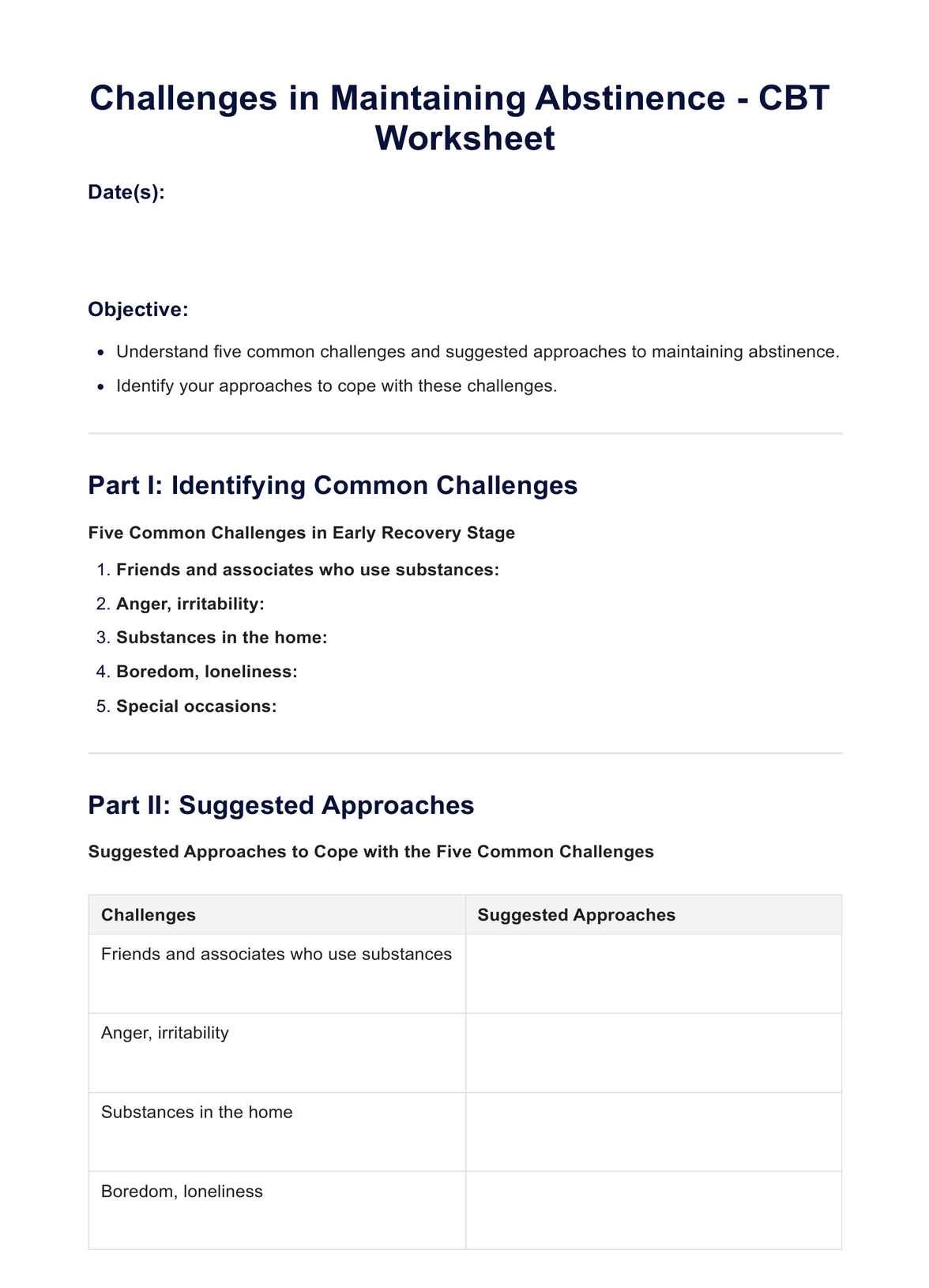The time it takes can vary depending on the individual, but generally, it can be completed in one to two sessions.

Challenges in Maintaining Abstinence CBT Worksheet
Explore the Challenges in Maintaining Abstinence CBT Worksheet�??it aids in identifying triggers, creating coping strategies, and planning for relapses.
Use Template
Challenges in Maintaining Abstinence CBT Worksheet Template
Commonly asked questions
It can be used to identify triggers, develop coping strategies, and plan for potential relapses.
Healthcare professionals can use this worksheet with their patients, particularly psychologists, therapists, and addiction counselors.
EHR and practice management software
Get started for free
*No credit card required
Free
$0/usd
Unlimited clients
Telehealth
1GB of storage
Client portal text
Automated billing and online payments











